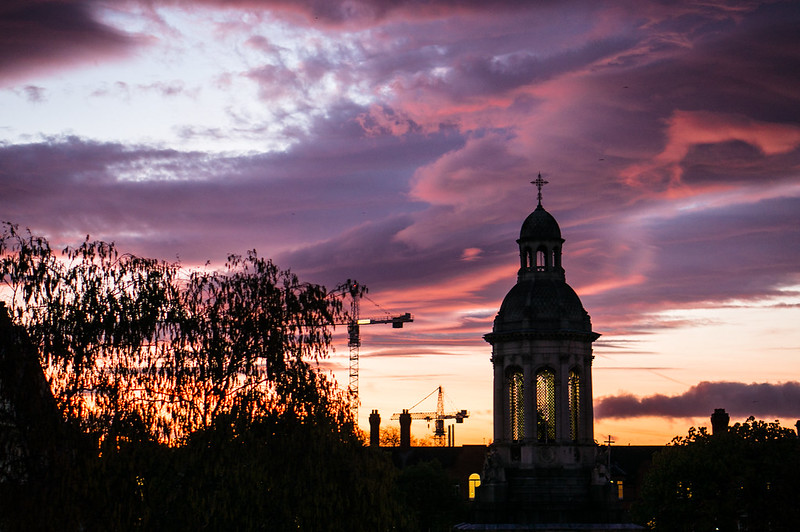The number of people sleeping on the streets in Dublin steadily increased within the first months of lockdown. Based on a public government arrangement, most rough sleepers were organised and redistributed to facilities such as hotel rooms, hostels and Airbnbs, enhancing the ability to enforce some social distancing measures in new spaces, breaking from the status of overcrowded hostels.
Adequate staff was provided in hotels to deal with individuals with addiction issues, and meanwhile this created positive financial outcomes for many hotels struggling due to the lack of tourism. Some 24-hour hostels, which would usually welcome rough sleepers from the evening to the morning, shifted to a full 24-hour service.
Additional aid was provided by the Dublin Regional Homeless Executive Central which did its best to settle homeless people in accommodations and prevent the spread of the virus, especially as hostels now relied on organised services and the free phone line which previously enabled last-minute booking for 24-hour hostels was inactive.
A strange positive effect of the pandemic was rough sleepers’ relocation to houses permanently, leaving a state of uncertainty behind them. Trinity’s Saint Vincent De Paul (VDP) society provided consistent support, especially in hostels, in particular ‘Brú Aimsir’ in Thomas Street. They managed the locker area to ease the pressure on staff who could focus on other duties essential to the welfare of its guests.
A strange positive effect of the pandemic was rough sleepers’ relocation to houses permanently, leaving a state of uncertainty behind them
A question that remains is what will happen to those who were relocated after the pandemic. Currently, there is no answer. There is no long-term sustainable solution due to the high financial costs for the Dublin Region Homeless Executive Central in renting these facilities. Discussions and projects on how to fund and support the issue are constantly ongoing and have been in focus. Fundamentally, the national response to the health crisis was positive.
It is essential to recognise the considerable aid administered by VDP previously to the lockdown. VDP continued to operate during the pandemic, re-establishing norms essential to the safety of both staff and rough sleepers, such as minimising staff numbers, not taking in new volunteers, and installing longer shifts than prior to lockdown.
Speaking to Peter Benson and Connall Keane from VDP, it was expressed that government practices were very effective in offering large numbers of rough sleepers shelter, but it created more uncertainty for those left on the streets, as soup runs became more precarious and the free phone line became inactive. These particular cases underline the dangers for who is still left in this street, and how this issue is not solved in a city with a steady increase in homelessness since 2010.
Since the start of the virus outbreak, the Depaul Society also took part in a program in conjunction with the HSE in two separate systems: one service for individuals with symptoms which enabled them to self-isolate, another for rough sleepers with underlying conditions, especially the elderly.
A question that remains is what will happen to those who were relocated after the pandemic
Nevertheless, there are types of uncomplicated and transparent help that can be provided to the homeless daily. In fact, an extensive part of the matter lies in the social attitude towards their situation. This impactful factor was highlighted by Peter Benson and from personal experiences: after all, a few chats after a long day of being ignored or walked over make a big difference.
Simply talking to someone who is alienated can help them to feel more stable and included. In these difficult times, the most human approach is essential for those who are just trying to get by. The need for empathy from the ones in positions of comfort is of the highest influence nowadays.
Walking on one end of Phoenix Park, a young girl asked me to sit down next to her. She asked me to recount my day. She expressed to me that what she needed the most was human contact, providing her with normality, the feeling of being considered, the acknowledgement of being somebody so often simply assumed by most. A few weeks after this encounter, while bringing some bread to a rough sleeper I had knew to see, I decided to sit with him while he ate his food. He expressed how nothing could have made him happier.
In facing coronavirus, homelessness has been supported by the government and fabulous external services such as VDP. We must not forget that their struggles, mental and physical, are human, although more difficult to overcome. Some are simply looking for some words, some time and kindness that we have the ability to provide. Walking around the city with a painting under my arm, the only admiring voice was of a homeless person, praising the non-forgotten beauty of the world and the beauty of art.







